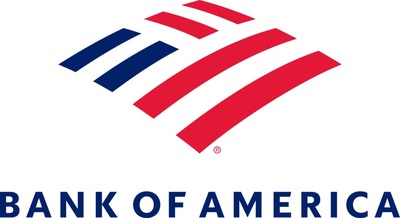BofA Survey Finds Many American Workers Optimistic About Their Financial Future, Though Feeling the Strain of Inflation
While Saving for Retirement Remains Top Financial Goal, More Employees Prioritizing Pressing Needs
First launched in 2011, the annual Workplace Benefits Report examines trends related to workplace financial benefits and wellness programs. Based on nationwide surveys of more than 1,300 employees and nearly 800 employers conducted during the first half of this year, the 2023 Report unveiled trends across employee retirement preparedness and financial well-being, the impact of caregiving on the workforce, and the state of the workplace.
"American workers continue to feel stressed about their finances and are concerned about keeping up with the cost of living," said Lorna Sabbia, Head of Retirement and Personal Wealth Solutions at Bank of America. "Companies who show a sense of urgency for their workforce by offering financial wellness programs and resources which support employees' immediate needs and overall well-being will continue to stand out as employers' of choice."
Employees continue to look for support from their employers, with most employees (
- Employees are prioritizing short-term financial needs over retirement savings. Fewer employees are prioritizing long-term retirement savings (
31% , down from45% in 2022) as a growing number are focusing on short-term financial needs, including paying off credit card debt (16% vs.11% in 2022) and saving for the unexpected (13% vs.8% in 2022). - Half of employees are not actively saving for future health care costs. Nearly half of employees (
45% ) say they are not saving specifically for health care. Additionally, confidence in managing health care costs has decreased (16% vs.27% in 2022), and only7% plan to start contributing to an HSA to help address the future cost of health care. - Women are feeling the weight of financial stress. Only
38% of women feel financially well in 2023, a decrease from55% in 2022, and a five-year low.54% feel that they won't be able to make ends meet due to inflation, compared to32% of men; and39% have had to look for additional employment due to rising costs, compared to17% of men. - Feelings of financial wellness also vary by ethnicity and location.
61% of Asian employees rate their financial wellness as good or excellent, followed by White/Caucasian (44% ), Hispanic/Latinx (40% ) and Black/African American (35% ). Additionally, less than 1-in-4 of employees living in urban areas feel prepared for retirement, compared to32% of suburban employees and43% of rural employees.
The Impact of Caregiving on the Workforce
This year's report also examined caregiving and its oftentimes hidden impact on the workforce. More than half of employees (
Balancing career and caregiving can come with sacrifices for employees, including using vacation time (
The Evolving Workplace
While employers report lower employee attrition rates this year compared to 2022, staffing continues to be a challenge. Nearly one-third of employees (
More than half of employers currently have an in-person work model (
More findings, including actionable steps for employers, are available in the Bank of America 2023 Workplace Benefits Report (PDF)
Bank of America
Bank of America is one of the world's leading financial institutions, serving individual consumers, small and middle-market businesses and large corporations with a full range of banking, investing, asset management and other financial and risk management products and services. The company provides unmatched convenience in
For more Bank of America news, including dividend announcements and other important information, visit the Bank of America newsroom and register for news email alerts.
Bank of America is a marketing name for the Retirement Services business of Bank of America Corporation ("BofA Corp."). Banking activities may be performed by wholly owned banking affiliates of BofA Corp., including Bank of America, N.A., Member FDIC. Brokerage and Investment advisory services are provided by wholly owned non-bank affiliates of BofA Corp., including MLPF&S, a dually registered broker-dealer and investment adviser and Member SIPC.
Investment products:
Are Not FDIC Insured | Are Not Bank Guaranteed | May Lose Value |
© 2023 Bank of America Corporation. All rights reserved. MAP5950271
Reporters may contact:
Don Vecchiarello, Bank of America
Phone: 1.980.387.4899
don.vecchiarello@bofa.com
![]() View original content to download multimedia:https://www.prnewswire.com/news-releases/bofa-survey-finds-many-american-workers-optimistic-about-their-financial-future-though-feeling-the-strain-of-inflation-301938735.html
View original content to download multimedia:https://www.prnewswire.com/news-releases/bofa-survey-finds-many-american-workers-optimistic-about-their-financial-future-though-feeling-the-strain-of-inflation-301938735.html
SOURCE Bank of America Corporation







